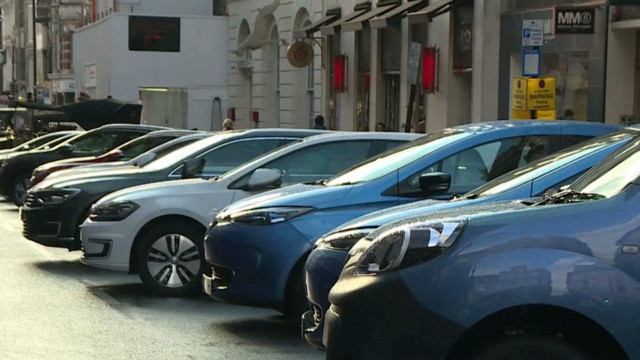Sales of electric vehicles are increasing around the world. The German company Hubject has revolutionized the way EV users pay for charging their cars in Europe and Japan, and has now announced it is expanding to China and the U.S.
CGTN’s Natalie Carney has more from Berlin.Follow Natalie Carney on Twitter @NatalieCarney77
Nearly 800,000 electric vehicles were sold globally in 2017 as of September–a 46 percent increase over the same period in 2016 with most major automotive brands now manufacturing EVs. Almost half of those cars were sold in China alone.
In this, Germany’s Hubject has found tremendous untapped potential in the way these cars are charged.
“Is the charging infrastructure landscape in China different to what we know from Europe? Our result is no,” Hubject’s Co-CEO Thomas Daiber says. “You will find a lot of local charging station operators with proprietary IT systems, so we decided we can also help in this regard.”
Hubject has brought together many changing station operators to simplify how and where users can charge their cars. In Germany alone, there are well over 200 individual charging businesses, and roughly 80 percent of those have been connected through Hubject’s “intercharge” program.
“What we are doing is connecting the IT systems to a unified charging infrastructure, so it’s not important anymore how this charging station looks and who’s behind the charging infrastructure,” Daiber says.
According to some research, electric cars, over their life cycle, generate about half the emissions of comparable gasoline cars, and that’s accounting for their relatively high manufacturing emissions. Not to mention, more and more charging stations are themselves being powered by green energy.
Prior to Hubject, one would have needed hundreds of charging cards to travel across the country, let alone to a neighboring country. Now buying an electric vehicle has become more convenient.
“We have to aggregate those different venues, those different operators to a digital infrastructure that is accessible with only one charging card, one smart phone application or one application inside the car,” Daiber says.
Other market improvements such as ultra-fast and wireless charging stations are in production across Europe. Retail prices for EVs are also dropping, pushing analysts to predict an even sharper sales curve in the years to come.
“Due to new regulations of the Chinese government, which we believe are just the beginning, we are convinced of a steady, growing electric vehicle market in China,” Manager of Hubject China, Ye Jiang says.
China is working to become a market leader in clean energy vehicles and is looking to Germany for their research and development.
 CGTN America
CGTN America
